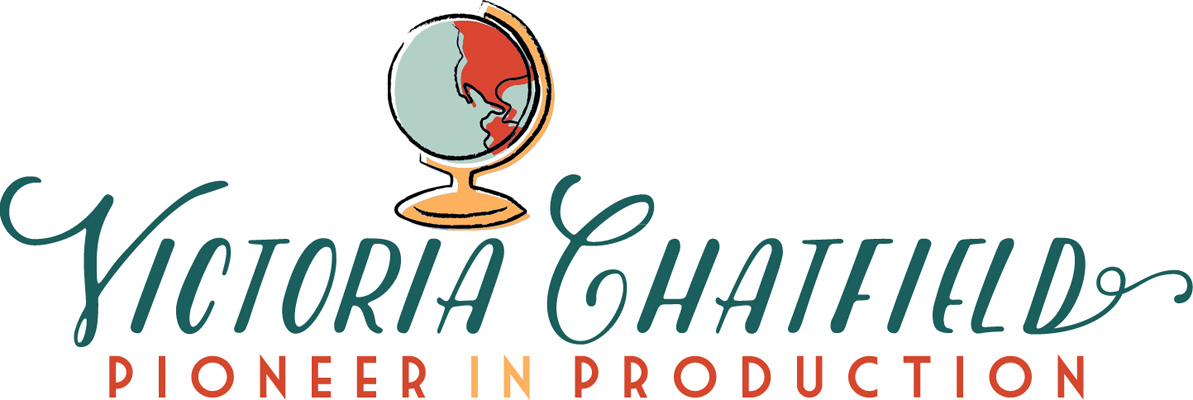Back in September, I made a decision: we were going to produce actual plays and musicals this year -- even though I only see my classes once a week (at most). I couldn’t think of any better way to get all 330+ of my students to commit to the theater department. After all, what made me fall in love with theater way back in elementary school? Performing in a bootleg Disney musical done by a third-rate summer camp. It’s all in “the smell of the greasepaint, the roar of the crowd,” as the thespians say. So I purchased my scripts, made my royalty payments, and laid out the rehearsal schedule.
And then everything fell apart.
Directing requires a ton of one-on-one and small-group work. Unfortunately, I found completing that work during a regular class period to be almost impossible. The biggest problem was that students who weren't up onstage working would get bored and start chatting. Or ripping up floor tape. Or throwing Legos at each other. These distractions not only make it difficult for the actors to focus, they make it difficult for ME to focus. So I decided to plop all of the students down with Chromebooks and a Brain Pop assignment. That worked extraordinarily well . . . until I realized that some of them had learned to bypass the web filter and were using their newfound open access to look at hardcore girl-on-girl pornography.
Maybe the Chromebooks weren’t such a great idea after all.
Even when the students were distracted by their Chromebooks, having everyone sitting on the sidelines put actor inhibition through the roof. All of my pleas and protestations (“No one’s watching you! They all have headphones in! They're all listening to Drake!”) couldn’t do anything to make my middle schoolers less concerned about looking “cool.” If I wanted to make any breakthroughs, I was going to have to get them alone in the classroom.
Easier said than done.

(I had to pull three of these students from their regularly scheduled classes to make this film shoot happen)
For seven months, I tried to jerry rig the schedule to work for small-group rehearsals. I had breakfast duty every day, so meeting before school was out-of-the-question. There was one day when I didn’t have lunch duty, but by the time students grabbed their trays from the cafeteria and made their way upstairs, I had maybe ten minutes with them. Not exactly the makings of an artistic self-awakening. Students were only allowed to stay in the building for an hour after school, which limited how much we could get done (especially with so many students needing extra work time). I started scheduling small-group rehearsals during recess, which only occurred once a week and didn’t exactly endear me to students for whom theater was a mandatory chore. And some days, especially during IA testing, I was able to email guided reading instructors and pull students from their classes. But rarely did students appearing in scenes together have guided reading at the same time – meaning that I’d work on a scene with Petruchio during period three . . . and then work on the same scene with Katherine during period seven.
By the end of the year, I was exhausted and, despite my best efforts, the plays didn’t get off the ground. I’m going to make another attempt next year (same students, same plays) – but I don’t know if anything will change if the schedule doesn’t.
Schools need to schedule “flex time” for students during the day. I know that our high schoolers have “office hours,” during which they can check in with their teachers, attend optional study sessions, or participate in extracurricular activities. These “office hours” happen every day and give students an opportunity to catch-up academically and/or pursue their passions. Our middle schoolers don’t have that same luxury which means that, during the time in their lives when they’re most likely to disengage with academics, they’re forced into doing a ton of stuff that they don’t want to do – without allocating time for the pursuit of subjects that actually interest them. And teachers who want to work with students one-on-one (especially teachers who don’t work in traditional academic subjects) end up participating in the Time-Slot Olympics, cobbling together a work schedule out of ten-minute chunks of time. By giving them more “flex time,” we’ll be scheduling our students for success.

(Goofing around during a recess puppetry rehearsal)
Day Thirteen (31 Days of Trip Planning): Reading the Lonely Planet: Dublin and Lonely Planet: London guides on Kindle Unlimited. Not that I'm going to any tourist attractions, but they give you a decent sense of what the neighborhoods are like.






No comments